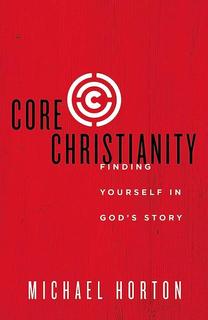One of the tragedies of modern debates about the Holy Spirit’s work in the church and in our lives today is that we have narrowed his repertoire. The Third Person of the Trinity is frequently associated almost exclusively with: (1) the application of salvation (2) direct, immediate, and surprising activities within us that defy any external means; and (3) the extraordinary (miraculous signs and wonders, gifts of healing and tongues, and so on).
The Holy Spirits works with the Father and the Son in creating and sustaining life.
We fail to appreciate that the Holy Spirit is the “Lord and giver of life” in every work of the Godhead. It is not at Pentecost but at Creation—in the second verse of the Bible—where we meet the Holy Spirit in Scripture. Hovering over the waters of creation, making the Father’s speech, mediated by the Son, to bear its intended fruit, the Spirit is the divine person at work within creaturely reality to shape and vivify it.
The Spirit breathed life into Adam and was “out in front” to lead him to glory. When Adam quenched him, the Spirit came in judgment “in the cool [ruach] of the day” (Gen 3:8). Then the Spirit led Israel through the Red Sea to the Promised Land with the pillar and cloud. Throughout biblical history (as I demonstrate in Rediscovering the Holy Spirit), the Holy Spirit is engaged in judgment and power, leading his people by type and shadow to hope in the messianic seed who will “redo” Adam’s failed trial and enter the Sabbath consummation with his people in his train. The Spirit also hovered over the “waters” of Mary’s womb: “And the angel answered her, ‘The Holy Spirit will come upon you, and the power of the Most High will overshadow you; therefore the child to be born will be called holy—the Son of God’” (Luke 1:35).
The Spirit joined the Father’s benediction over the New Creation—Jesus himself (Luke 3:22). “And Jesus, full of the Holy Spirit, returned from the Jordan and was led by the Spirit in the wilderness for forty days, being tempted by the devil. And he ate nothing during those days. And when they were ended, he was hungry” (Luke 4:1–2). It was by the Spirit that Jesus performed his miracles and cast out demons (Matt. 12:28, 31), by him that Jesus offered himself as a sacrifice (Heb. 9:14) and was raised (Rom. 8:11). Only with such a wide canvas can we appreciate the fact that the same Spirit was poured out at Pentecost to regenerate, indwell, empower, sanctify, and glorify us, distributing particular gifts to each for the good of the whole body (1 Cor. 12).
The Holy Spirit works through nature.
We [also] fail to appreciate the Holy Spirit works through creaturely means. We see this already with his brooding over the waters to make them fruitful. The Spirit did not work against nature in the incarnation but above it, so that the eternal Son assumed our full humanity, yet without sin. The Spirit works through means in our lives now: through preaching, water, bread, and wine. If we fail to appreciate how the Spirit works through means, then we will fall into either formalism (the means without the Spirit) or enthusiasm (the Spirit without the means).
The Holy Spirits works through ordinary processes and means.
The Spirit’s work is often ordinary. Sometimes it is [extraordinay], of course, as in the incarnation. But the Spirit was just as involved in the ordinary process of Jesus’ gestation and growth into a mature young man (Luke 2:40–41). He not only regenerates us through the gospel, but he also brings forth the fruit of the Spirit in our lives in ways that are often imperceptible through a process of gradual growth (Gal. 5:22–23).
So, before we become embroiled in the usual controversies of recent generations, it is helpful to set before us this wider canvas that can bring us together instead of tear us apart.
Adapted from Michael Horton, “Word, Water, Supper: The Work of the Spirit” Modern Reformation, May/June 2018. Used by permission.






